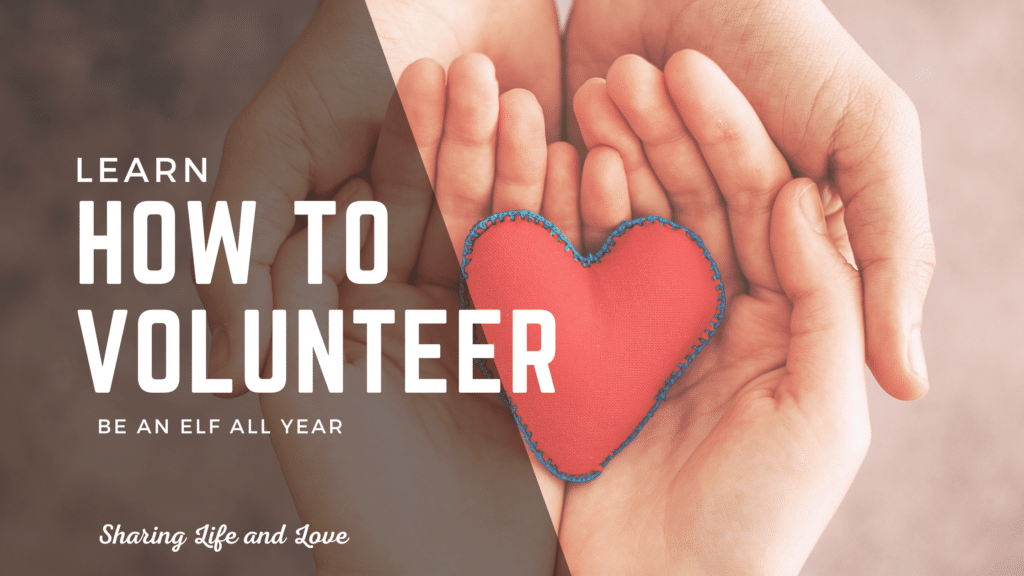Are you full of questions about gratitude in recovery? Did you know that you can change your entire perspective with a little gratitude? Thankfulness is an essential part of life!
For this reason, it’s vital to start practicing gratitude as early as possible in your recovery journey. People with gratitude are generally more successful and tend to be all-around happier individuals. Wouldn’t you love to have those side effects?
How do people practice gratitude in a world that encourages grumbling and complaining? The secret is usually the fact that they embrace positivity! Those who practice gratitude regularly have a more positive outlook on life and the problems that come with it.
Being grateful is an important component on your road to recovery from addiction or any other hurt, hang-up, or bad habit. In essence, practicing gratitude in recovery can help in a tremendous way!
Often, gratitude helps recovering addicts face the many challenges that are inevitable in recovery. Let’s look at how crucial gratitude is in recovery and how you can easily practice it in your own life.
Gratitude is the single most important ingredient to living a successful and fulfilled life. – Jack Canfield
This post may contain affiliate links. Please visit our Privacy Policy for more information.

What Is Gratitude In Recovery?
People recovering from abuse or addiction can easily fall into depression or suffer from generalized anxiety. Practicing gratitude in recovery helps to cultivate positive feelings to get rid of the negative force that seems to be surrounding their lives.
Relapse is common on the road to recovery. Practicing gratitude can be helpful in many ways for those coming out of addiction or abusive relationships.
Displaying positive behavior on your road to recovery may also impact those around you. Surrounding yourself with positive vibes will likely improve your mental and physical well-being.
Gratitude is one of the first and most vital positive behaviors that you learn to practice on your recovery journey.
If you haven’t considered joining an AA or Celebrate Recovery meeting near you, we urge you to give it a shot! Anyone can go to CR (Celebrate Recovery); you do not have to be an addict to attend the meetings. After all, everyone has some kind of hurt, habit, or hang-up, right?
I may not be where I want to be, but I’m thankful for not being where I used to be. – Habeeb Akande
Why Is Gratitude Important In Recovery?
Do you think that gratitude is essential in life? Are you healing through recovery? Maybe you are asking, why is gratitude important in recovery?
Well, the practice of gratitude in recovery can have a lasting impact on your journey. In fact, in looking at the benefits of gratitude, we see that it can be divided into physical, psychological, and social aspects.
Physical
If you practice gratitude in recovery, you may feel a positive impact in a physical way, and the difference becomes apparent within your body.
- Gratitude helps you build a strong immune system.
- Gratitude can lower your blood pressure.
- Gratitude reduces aches and pains.
- Gratitude promotes sleep and improves the quality of sleep.
- Gratitude fosters interest in self-care.
- Gratitude encourages exercise and taking better care of your health.
Learn more about the benefits of doing good for others. Consider how that action affects your health!
Psychological
The practice of gratitude also impacts you emotionally, as you feel its effect on how you see life. The psychological effects of practicing gratitude in recovery may promote many different positive feelings.
- Gratitude increases the number of positive emotions you experience.
- Gratitude promotes a sense of happiness, pleasure, and joy.
- Gratitude helps you look at life as an optimist.
- Gratitude makes you more alert and aware of yourself and your surroundings.
Learn more about the benefits of optimism when you strive to encourage someone else!
Social
Practicing gratitude in recovery can benefit those around you because of the positivity you nurture within yourself. There are many other ways to experience the benefits of gratitude on the social level.
- Gratitude increases your desire to become more generous, thoughtful, and compassionate.
- Gratitude gives you a more friendly and outgoing personality.
- Gratitude helps you forgive others more freely.
- Gratitude reduces feelings of isolation and loneliness.
Learn more about how your social life can be improved by understanding the benefits of having friends! This is another life-changing byproduct of practicing gratitude!
The miracle of gratitude is that it shifts your perception to such an extent that it changes the world you see. – Dr. Robert Holden
How To Practice Gratitude In Recovery
Practicing gratitude can be easy for some and daunting for others, especially for those addicted to alcohol or drugs.
Nurturing positive thoughts within can be challenging. Many are naturally inclined towards negativity and see the wrong side of things.
Practicing gratitude starts with changing yourself to think positively and show appreciation.
There are several ways that you can practice gratitude in recovery.

#1. Keep A Gratitude Journal.
Set aside a few minutes each day to write down people, things, and feelings you appreciate as part of your life. Write down even the smallest things. If you really think about it, you will find the number of things you have in life to be grateful for to be quite bountiful.
Maintaining a gratitude journal helps eliminate feelings of depression and anxiety and teaches you how to develop humility. You also learn to see the positive side of life even at troubling times.
There are multiple ways in which you could record what you are grateful for in life. It could be maintaining a:
Trade your expectation for appreciation, and the world changes instantly. – Tony Robbins
#2. Focus On The Positives In Life.
Positivity is one of the greatest assets you can own on your road to gratitude in recovery. Focusing only on the good things in life will help you develop a positive attitude over time.
Thinking less about the negative or bad things in life is another move you can make toward nurturing feelings of gratitude.
Focusing on things you don’t have develops resentment and ungratefulness. These can lead to negative emotions like jealousy and anger, which you need to eliminate if you want to feel grateful.
Start focusing on the relationships and people around you that you value. This will be a big step in developing long-lasting happiness within yourself.
Gratitude makes sense of our past, brings peace for today, and creates a vision for tomorrow. – Melody Beattie
#3. Accept People For Who They Are.
The way you see and think of people can have a significant impact on your overall feelings. At times, it might be hard to accept people due to some aspects of their attitude and behavior.
However, the important thing to note is that not everyone is perfect. You need to foster as many positive thoughts as possible on your journey towards feeling grateful.
Learn to accept people for who they are. Overlook the aspects of their behavior and attitude that you don’t like. Learn to appreciate the good features that they possess.
Doing this will help you develop patience and formulate an open-minded attitude. It will also make you more respectful towards others. This will improve your relationships dramatically.
We think we have to do something to be grateful, or something has to be done in order for us to be grateful when gratitude is a state of being. – Iyanla Vanzant
#4. Practice Generosity.
Practicing generosity is vital to developing gratitude within yourself. It promotes self-awareness and humility, which are essential on the road to recovery.
Learning to give to others helps you appreciate what you have and also gives you something to focus on and be happy with.
A few ways you can practice generosity are volunteering at homeless or animal shelters and orphanages and spending time with less fortunate people.
You can also show kindness to your friends and family by offering to cook dinner or paying for a coffee.
Gratitude opens your eyes to the limitless potential of the universe, while dissatisfaction closes your eyes to it. – Stephen Richards

#5. Build Community.
Become a part of a community that shares the interests that you have. It could be a community group related to health and fitness, something spiritual, or groups related to recovery.
Aim to be yourself – whichever type of community you choose to be a part of. This will help you because you are sharing your thoughts and feelings with people of similar backgrounds or interests.
This type of community engagement fosters self-awareness, which is essential in developing feelings of gratitude from within.
At times our own light goes out and is rekindled by a spark from another person. Each of us has cause to think, with deep gratitude, of those who have lighted the flame within us. – Albert Schweitzer
#6. Meditate.
Meditating for a few minutes a day can significantly benefit your health. Meditation is known to help with many things.
- Boost Mental Well-Being
- Reduce Stress
- Improve Physical Health
- Manage Pain
- Promote Sleep
- Improve Spirituality
All of the above benefits are essential in recovery, so you should practice meditating for at least a few minutes every day. Once you do this, you will begin to feel the physical and mental benefits.
As we express our gratitude, we must never forget that the highest appreciation is not to utter words but to live by them. – John F. Kennedy

#7. Engage In Prayer.
Find time each day to say thank you to your Creator. Being thankful for what you have gives you more things to be grateful for. There’s a domino effect!
Prayer nurtures positive feelings, which makes you appreciate your life in every way. Prayer also aids in recovery, especially if you relapse.
Addicts are often filled with negative emotions and feelings, so prayer is crucial in cultivating positive thoughts within.
With prayer, you connect with God, bringing so much happiness and so many positive vibes. Do this, and you will feel a significant difference in the quality of your life.
If you do not know how to pray, be sure and explore the prayer articles shown on the website or check out a book on how to pray!
Let gratitude be the pillow upon which you kneel to say your nightly prayer. – Maya Angelou
Other Focus Areas In Recovery
Recovery isn’t easy at any stage because relapse is possible and often inevitable. Recovery programs will usually cover various aspects, including the physical and mental well-being of the person going through the process.
Additionally, recovery programs provide the tools required to establish good and healthy habits in individuals. This includes healthy sleep hygiene and fitness activities.
These programs also focus on maintaining a healthy body through proper nutrition, which you can get from weight loss shakes for women and men.
These programs also work toward helping individuals uncover happiness and joy in their lives and a prosperous future. The goal is to bring purpose into their lives in a positive manner.
Let us be grateful to the people who make us happy; they are the charming gardeners who make our souls blossom. – Marcel Proust

Frequently Asked Questions
How Does Gratitude Impact Mental Health?
Practicing gratitude is one of the simplest ways to improve your mental health. It will change your mindset by boosting self-esteem, increasing resilience, and helping you see the positive aspect of everything. Positivity is truly addicting! There really is no reason to avoid it!
What Is The Difference Between Thankfulness And Gratitude?
The main difference between thankfulness and gratitude is that thankfulness is a feeling, while gratitude is an action. Being grateful shows an appreciation of kindness. Kindness is another contagious element of life that you should try to implement in your life!
What Is The Power Of Gratitude In Recovery?
Regular practice of gratitude fosters positive emotions like optimism, enthusiasm, and joy. People who practice gratitude are usually highly satisfied with their lives and can manage stress well. They also experience less anxiety and depression. This shows how powerful gratitude is in recovery!
How Do You Stay Positive in Recovery?
Think of each day as a new opportunity to start over. If you have a setback during your recovery, you can experience positivity by learning from the experience. In what ways could you have handled things differently? How will you change your reaction in a situation like this in the future?
How Can I Be Grateful in AA?
Alcoholics Anonymous (AA) (and CR) are known for saying take one day at a time. If you have experienced a rough day, just remember that tomorrow, you get a fresh start to try again. Don’t think of a mistake as a failure. Consider it to be a learning opportunity!
Conclusion
Recovery is challenging but not impossible. Understanding the importance of gratitude in recovery and how to implement it will greatly help you along the way.
Use some simple ways mentioned in this article to foster feelings of gratitude in your life.
One major aspect of successful recovery is preventing relapse; fostering gratitude helps eliminate the chances of this happening. So, make sure you give gratitude a try today!
If you are on the fence as to whether recovery is for you or not, consider going to Celebrate Recovery – a place where everyone is welcome! You will surely find your place and your people at this Christian recovery program!
Gratitude is the open door to abundance. – Buddha



